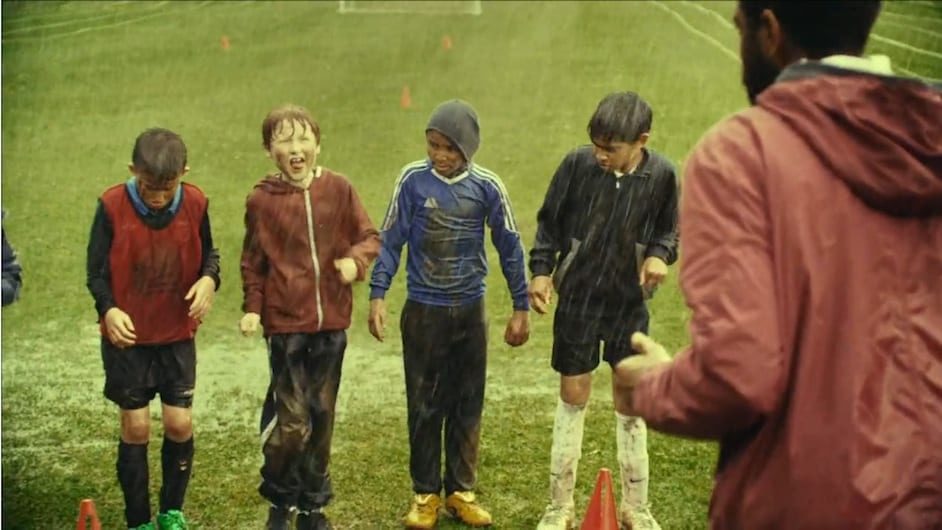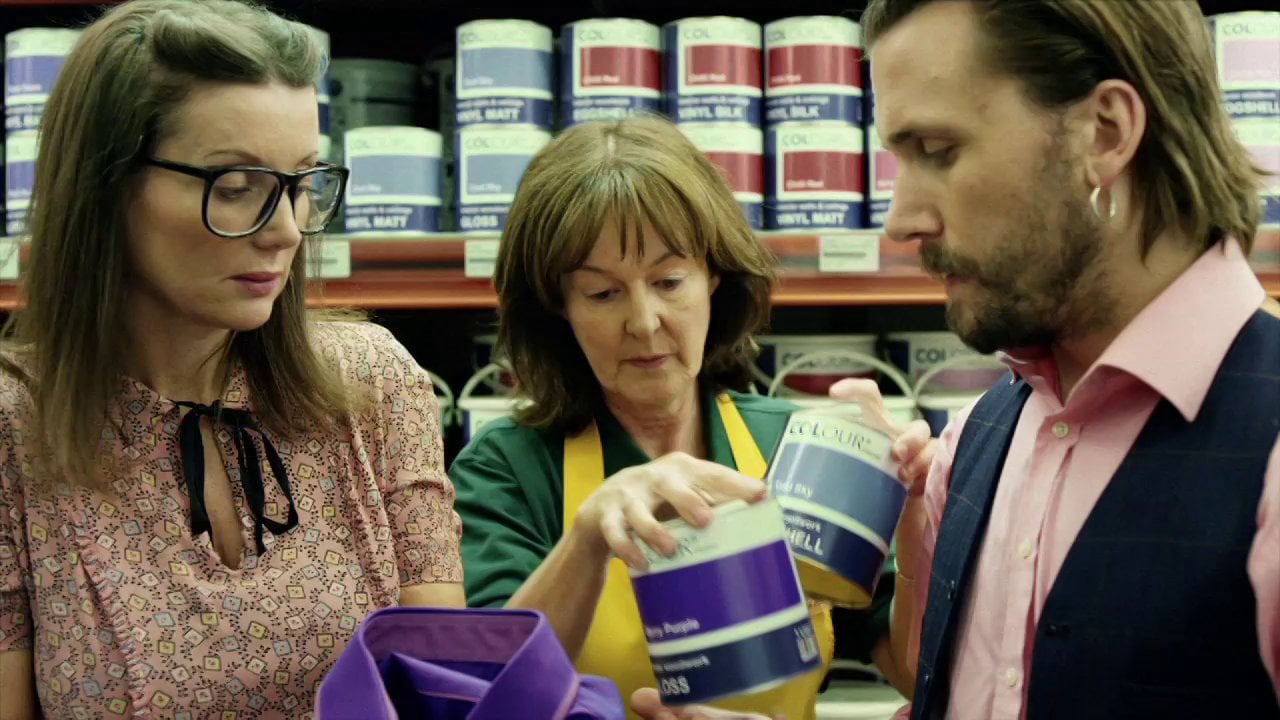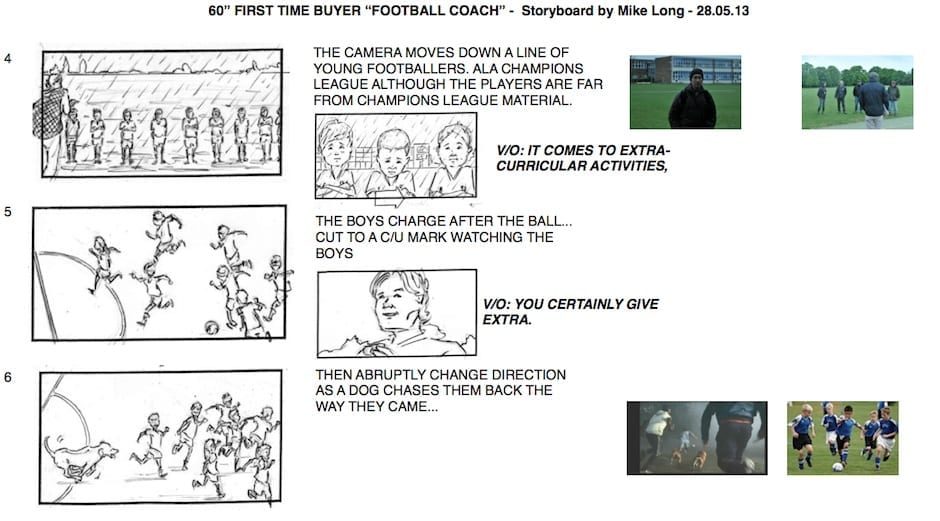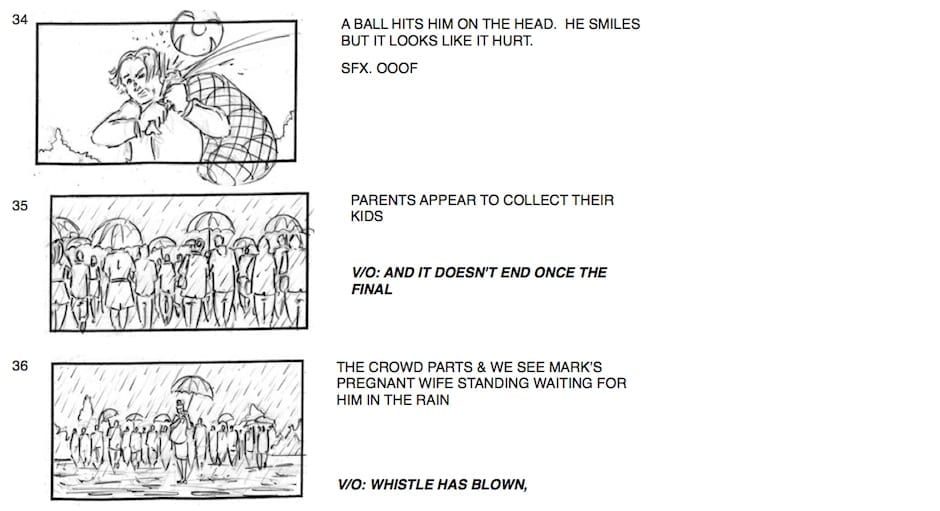What was the original brief and how did you evolve it and was it your treatment which won the pitch?
The original brief was fairly similar in concept, although in the treatment I expanded and toyed with the narrative details that I knew would build a fuller, and more intimate, image of day-to-day moments for each main character.
I also emphasized that careful casting would be key, and that I would be trying to push a dark, comedic angle as far as the client could allow. As I already had a relationship established with Adam&Eve/DDB, the creative team knew I was good for my word in that department.
The treatment process was really exhaustive, much more than normal I’d say, with three 60″ scripts to treat on, all with lots of possibilities. (The third is still to be released).
Having a set of scripts that are so open (a paragraph introducing the lead characters, a few initial scenarios and the winning voiceover) is liberating in one sense but in a way it’s much harder than treating on a script that is totally buttoned down. There was so much that could be done with these characters that narrowing down the ideas and distilling the best ones into the final treatment ended up being really tough. We worked up many scenarios before settling on what was submitted.
I honestly think the treatment won it for me as I was up against some really strong competitors. We also put together a really solid production package for the agency to explain how we were going to achieve all of this. Shooting three scripts back to back, being cost effective and maximizing production value, made this element really important and I think gave the agency confidence that we could pull it off.
What do you think your American sensibility brought to the quintessentially English commercials or was it just a matter of universal truths?
To be honest I’m not sure if I have a stereotypically American sensibility, in some senses, my sensibility is almost a reaction to the culture that surrounds me. Growing up in a beachside Florida town, I was surrounded by aspirationality, with fake boobs and ultra white teeth in abundance. It always struck me as absurd, how much of people’s uniqueness was quashed and buried in the pursuit of happiness. Then I lived in the UK, I loved the fact that TV news commentators were sometimes quite odd-looking, there wasn’t a slickness to everything. Individual quirks in people are celebrated, as are the often darkly absurd aspects of daily life. So, although I am immersed in American culture, I guess my creative outlook naturally leans toward a British slant, which helps.
Were there a lot of rehearsals and how did you cast the leads, what were you looking for?
We spent an extensive time casting the leads, because I was looking for actors who could convey a lot of character with subtlety. On top of being able to act well, they needed to have an interesting face, one that could draw you into their life, yet not look too bizarre or quirky. Everyday but interesting, which always sounds easier than it is in reality. As the scripts evolved alongside the production schedule, there actually wasn’t time for a huge amount of rehearsals, but when you have great actors, and there isn’t dialogue, that’s not so much of an issue.
I was confident going into the shoot day that we had the right lead for each script. We also had a technical advisor for each script which meant that I could solely concentrate on their performance rather than worry if they were executing their tasks correctly.
But a few things we did were:
The football recall session was held on a Saturday morning with the boys from Parkfield football club. Our actors led a training session with the boys which was really helpful in making a final decision on who’d nailed the role and storyboarding final scenarios.
We sent Linda in DIY on a course to learn how to drive a forklift truck, and another to operate scissor lifts. So it really is her doing those things in the spot.
In Stewardess (not out yet), we had Tarryn train with an actual stewardess to get the safety demo perfectly and little nuances that only someone who’s done the job would know.
What were the main challenges of the production and how did you get around them?
It was a tough shoot but nothing out of the ordinary. Some challenging aspects were working with kids under rain machines in an unseasonably cold May, working at heights with an actress who didn’t feel comfortable at heights and having to shoot on an actual 747, which when it comes to lighting is 30 foot in the air.
One of the main challenges was that the scripts changed during the course of the production, so a collaborative approach with the creatives was vital to make sure we had something to shoot on the shoot days. Luckily that’s something I enjoy, and the DIY spot emerged from the pile, which meant I got to shoot a 50-something woman driving a forklift. Can’t complain about that.
See in Related Content for a selection of Halifax, Football storyboards
























